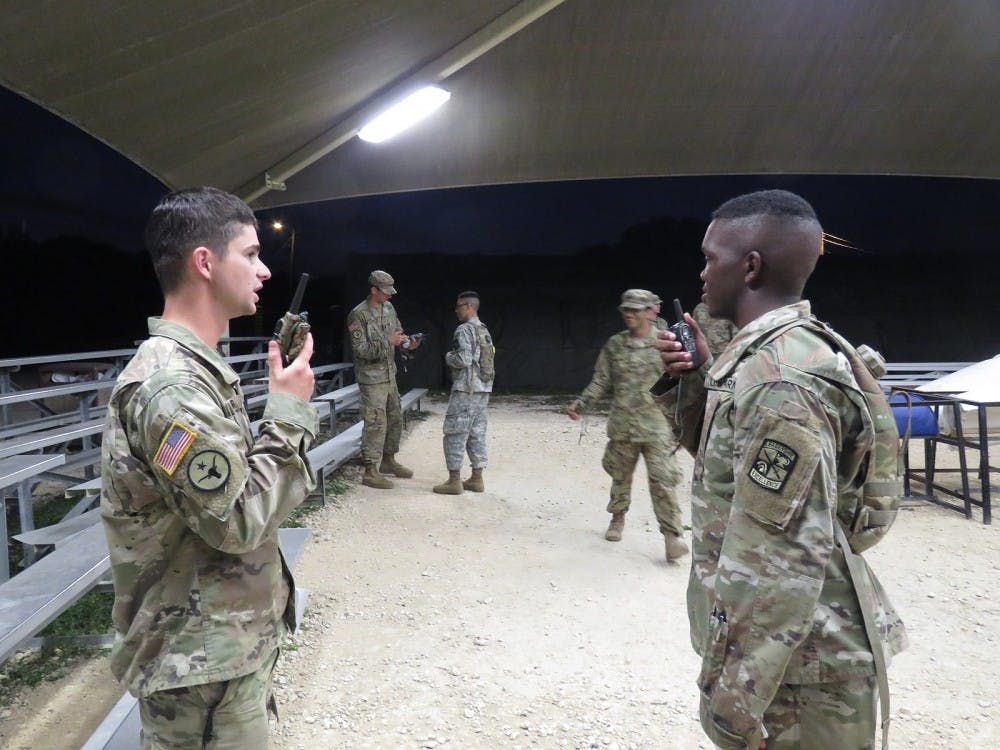In a column published earlier this month, Opinion Columnist Jake Wartel composed a crude case against the University’s Reserve Officer Training Corps based on two non sequiturs. Because the U.S. military is an “objectively destructive institution,” and college should theoretically be free, a military program that provides scholarship opportunities to students must be rendered “obsolete.” To Wartel, the program represents an illicit exchange in which the United States government resorts to bribery in order to fuel its insatiable imperialist appetite. Aside from overlooking alternate motivations for joining ROTC, this portrayal fails in its outright misrepresentation of the U.S. military and of the economic viability of universal tuition.
Before getting into the two core contentions of Wartel’s argument, it is important to acknowledge that they rest on the false assumption that students join ROTC solely to accrue its economic benefits. Of those, he references specifically the program’s supposed assurance of college tuition, healthcare and housing loans. However, joining ROTC does not, in fact, “guarantee” free tuition — students apply for scholarships in a competitive process before and after joining the program. Moreover, this reductive attitude completely discounts the other benefits of ROTC — including but not limited to, technical training, job security and general feeling of contributing to a worthy organization.
The last benefit in particular is an idea that Wartel seeks to counter with his one-sided portrayal of the U.S. military and its global contributions. His article describes ROTC as “a brazen incorporation of the American military’s tentacles seeping into all aspects of life,” then goes on to condemn its augmentation of the military industrial complex. The highly selective depiction of history dangerously paints the U.S. military — and the men and women who compose it — as a mindless monolith of destruction and global imperialism. Not only is this view entirely dismissive of existential threats facing the United States as a world hegemon, but it also disregards international demand, historic and present, for U.S. hard power capabilities.
In the last century alone, the U.S. was the decisive player in the fight against and defeat of Nazism and Communism, ideologies that killed more than 100 million civilians combined. Today, the United States Navy and Marine Corps are the predominant, and oftentimes singular, protectors of international trade routes. This role protects people from around the globe from threats like piracy and foreign naval aggression, but it also ensures that the U.S. military makes significant economic returns on investment, with over 90 percent of international trade transported by sea. U.S. forces abroad also maintain stability in several decisive conflict-prone areas across the globe, like the Taiwan Strait and the Korean Peninsula. Wartel’s article implausibly assumes that everyone shares his radical perspective on the U.S. military, misrepresenting ROTC students at the University as either devoid of moral compasses or as voluntarily acting in opposition to them.
The second myth crucial to Wartel’s argument is the ease of implementing comprehensive “free” tuition programs nationwide. In attempting to support the idea of universal higher education, Wartel undermines students choosing the path of vocational training over four year universities. He describes a college degree as “essential to getting a job that pays the bills” but cites a study showing a closing gap between the unemployment rates of people with high school diplomas and people with associate’s and bachelor’s degrees. Moreover, the article over values expensive, and oftentimes impractical, liberal arts degrees. The fact is that college is affordable for people who desire to go. Community colleges and many public universities provide solid degrees at very small costs with more practical applications than the humanities majors being pedaled at prestigious universities.
Moreover, Wartel’s utopian idea to simply relocate the military budget to fund free tuition in a one-off transaction displays a lack of basic economic knowledge. If congressional spending has taught us anything, it’s that the percentage of the federal budget allocated to entitlement programs increases with each fiscal year. As a mandatory expense, entitlement spending threatens to all but consume the national budget — with 60 percent already going to these programs. This danger is particularly true for “free” tuition. Making a commodity free subsequently increases its consumption and therefore cost, rendering the $70 million Wartel cites completely irrelevant. So while the cost to fund higher education would skyrocket, its value would plummet. Wartel totally ignores the concept of scarcity by assuming that a college education would retain its value were it made free. It wouldn’t.
Rather than offering legitimate suggestions about how to achieve cheap and free tuition, the article implicitly criticizes ROTC students for not conforming to an impractical societal ideal of universalized education. In doing so, Wartel by necessity incorporates a broad condemnation of the U.S. military with no sense of nuance or historical context.
Charlotte Lawson is an Opinion Columnist for The Cavalier Daily. She can be reached at opinion@cavalierdaily.com.







